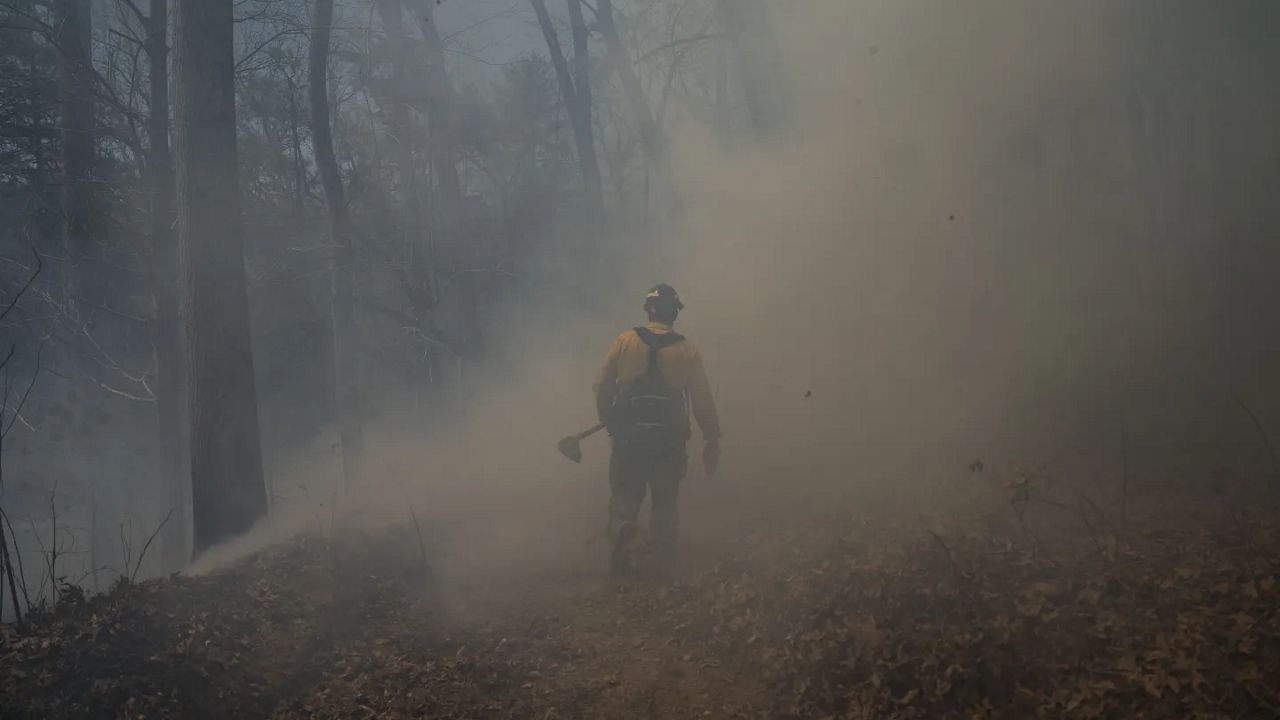MINT HILL, N.C. — A 34-year-old is raising awareness about skin cancer after becoming a survivor.
A survey reveals one third of Americans are not concerned about skin cancer
A skin cancer survivor said she’s applying sunscreen more now and avoiding sun exposure
A Novant Health medical oncologist recommends wearing sunscreen, avoiding tanning beds and wide brim hats can help prevent skin cancer
In 2019, Jessica Thompson found out she had stage 3 melanoma, which started as a small mole on her leg.
“I went from the cancer doctor, to a plastic surgeon and after the surgery was the infusion doctor,” Thompson said.
She said the treatment was hard.
“I was miserable. I was always feeling sick,” Thompson said. “I was still trying to do my workouts even though some days I was down more than others.”
In the meantime, she was also grieving the loss of her grandmother who passed away from another type of cancer.
“I got the phone call at work. It was very tough,” Thompson said.
In her perspective, her skin cancer was preventable.
“That’s my biggest regret, using a tanning bed,” Thompson said.
Novant Health Cancer Institute - Mint Hill Medical Oncologist Dr. Jennifer Dallas said avoiding tanning beds, limiting sun exposure, wearing wide brim hats and sunscreen of at least SPF 30 can help prevent skin cancer.
“It's more common than many other cancers. We expect about one in five Americans will develop skin cancer,” Dallas said. “It’s definitely something to take seriously.”
A recent survey from the American Academy of Dermatology Association reveals only one third of Americans are concerned about skin cancer. Avoiding wrinkles and sunburns were of higher concern.
Dallas was surprised to read about the results.
“I do feel like if you're wearing sunscreen and taking steps to prevent that, you're, in a way, reducing your risk for skin cancer as well,” Dallas said.
The survey also revealed nearly 70% of American adults say they have at least one risk factor.
According to the Centers for Disease and Prevention, people with a lighter natural skin color, blue or green eyes, blonde or red hair and/or more than 50 moles are at greater risk. The same goes for those whose skin burns, reddens or freckles easily or has a history of skin cancer.
Thompson became cancer free in September.
“I’m proud [but] it’s not something I would want anyone to go through,” Thompson said.
She displays a survivor flag on her frontyard.
“This is a good way to represent everything I went through. People ask me about it and I tell them my story,” Thompson said. “I feel proud of myself because it was definitely one of the hardest things I’ve gone through.”
Thompson is participating in a mental toughness program to gain her strength to participate in more obstacle races.
She does two workouts a day before dawn and after dusk. However, if she has to do them during the day or be outside for another reason, Thompson makes sure to wear sunscreen.
Dr. Dallas recommends adults to use sunscreen the size of a shot glass for their entire body.
She also says if you have a larger number of moles to keep an eye on those and report any changes.










